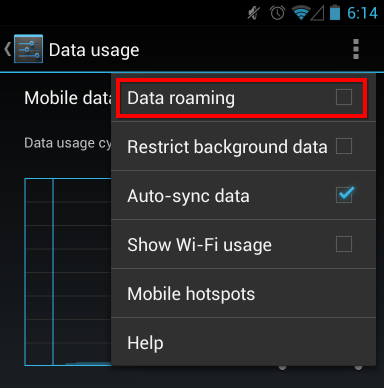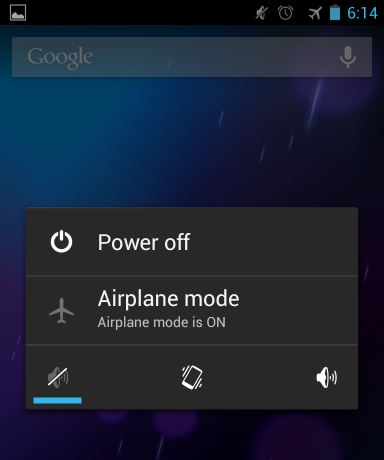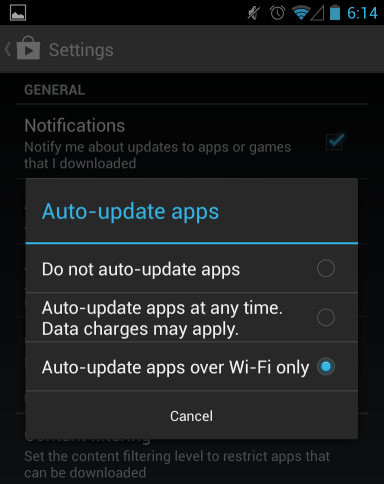Quick Links
Roaming data can cost as much as 300 times the price of domestic data, leading to bill shock. Some of the more extreme examples of roaming bills have been for tens of thousands of dollars.
Carriers have to negotiate roaming contrasts amongst each other, and they're generally free to add as much markup as they like when negotiating roaming rates. If you're travelling with a smartphone, beware of roaming fees.
Disable Data Roaming
The best tip for travelling with a smartphone is to avoid using roaming data entirely. Disable roaming data on your mobile phone so you won't use it while travelling. If you need an Internet connection, find a Wi-Fi network and use that.
Use Airplane Mode, Avoid Calls and Texts
Disabling roaming data will ensure you won't be charged for data, but you may be charged for incoming texts and voice messages -- even if you don't answer them. If you arrive in a foreign country before putting your phone into airplane mode, your phone will be associated with the local carrier. When you receive a phone call, that call will be routed to your current location. If you don't answer it, it will be routed back to your home country where the caller can leave a voicemail. Thus, the local carrier may charge you roaming fees even if you don't answer the call. (This may vary depending on your carrier, your plan, the country, the agreements involved, and so on -- it's a mess.)
So even if you have your phone in airplane mode and don't answer any calls, you may still be charged for roaming voice calls and text messages. If you want to avoid this entirely, put your phone into airplane mode before you leave home and leave it there for the entire trip.
You may be able to contact your carrier and disable roaming entirely -- your phone's data, voice, and text messages won't work outside the country, but you won't be at risk of incurring roaming fees.
Check Rates Ahead of Time
If you do want to use roaming data -- or even just calls and texts -- be sure to check roaming fees ahead of time. Your cellular provider probably has a website with this information. You can check to see whether the roaming fees are reasonable or completely over-the-top and adjust your usage accordingly.
Purchase a Roaming Plan
Many carriers offer special roaming packages that you can add to your current plan. These passes may be worldwide or only valid for certain countries. If you know you'll be roaming and using your phone, you'll often save money by purchasing a roaming pass ahead of time instead of paying the fees afterwards.
Buy a Local SIM Card
Roaming fees can cost so much more than domestic data -- so why roam? Assuming you have an unlocked phone, you can purchase a local SIM card and insert it into your current phone. You'll have a number and plan with a local carrier and you'll be paying the standard domestic rate, not the rates reserved for gouging foreigners.
This often works well with prepaid carriers, as you can put some money on a plan without signing a contract or paying a monthly fee. If your current phone is locked to your carrier's network, you can probably just purchase a cheap phone -- even one that only supports calls and texts, if you just want an emergency phone.
Note that, if your phone is locked, your carrier may unlock it for you if you ask and tell them you'll be traveling. Not all phones will work with all networks -- for example, CDMA phones from Verizon and Sprint won't work in most countries, which use the GSM standard (used by AT&T and T-Mobile phones in the US). Some phones (such as a few in the Motorola Droid line) have "global" modes, which means Motorola has put both a CDMA and a GSM radio inside, but that's a little further down the rabbit hole than we want to go in this article.
Reduce the Amount of Data You Use
If you have decided to purchase a roaming plan or deal with the roaming fees, you will still want to use as little data as possible. Be sure to disable app updates and reduce the amount of data your phone uses in the background. Set apps that use background data to work on Wi-Fi only, and be careful about the apps you open and use with a data connection.
Dispute Roaming Charges
If you do get stuck with a bill for tens of thousands of dollars because you used roaming data, you don't have to quietly accept it. Contact your carrier and dispute the bill. With any luck, they'll reduce the charges for you, especially if you've been a longtime customer. Standard tips for dealing with customer service employees apply -- don't be a jerk (no one wants to help a jerk). Don't be afraid to escalate to someone higher-up.
This seems to work -- in most cases of extreme bill shock, carriers reduce insanely high charges for customers who complain. In the case of a Canadian whose son used 700MB of data on a trip to Mexico, a bill for $20,000 was reduced to $2,200 as soon as the customer complained. The customer continued to fight the charges, escalating his complaint to the president of the company, and his bill was eventually reduced to $200.
If you're the next person stuck with a bill for tens of thousands of dollars and your carrier won't help you, don't be afraid to take your story to the media -- sometimes that's all that seems to work.
The cost of roaming fees is ridiculous, but it's something you'll have to think about when travelling with a cell phone. Sadly, it may be some time before we live in a world where we can travel and be charged reasonable fees without having to micromanage our phones and research these fees ahead of time.
Image Credit: Sean MacEntee on Flickr, Richard Eriksson on Flickr





![at&t-roaming-packages[4]](https://static1.howtogeekimages.com/wordpress/wp-content/uploads/2013/05/att-roaming-packages4.png)
![iphone-with-sim-card[3]](https://static1.howtogeekimages.com/wordpress/wp-content/uploads/2013/05/iphone-with-sim-card3.jpg)
